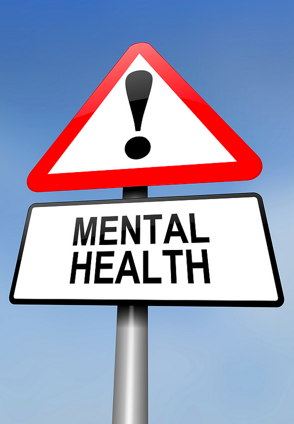Mental Health and Depression | A look at the surprising reasons why more young mothers-to-be may be feeling down.
Depression during pregnancy can have lasting consequences for mothers and babies.
WHILE POSTPARTUM depression gets a fair amount of attention, depression during pregnancy is often overlooked. And it may be becoming more common among expectant mothers.
After comparing prenatal symptoms of depression among two generations of women, researchers in the U.K. found that depression during pregnancy is 51 percent more common among the current generation of mothers-to-be, ages 19 to 24, than during their mothers' generation 25 years ago, according to a study in the July 13, 2018, issue of JAMA Network Open.
Interestingly, the study also found that the current generation of moms-to-be has a higher risk of depression during pregnancy if their mothers experienced depression during their pregnancies.
These findings "mirror the more general increase in depression among young women" that’s been reported, the researchers note. But other factors may be contributing to the rise among expectant mothers, in particular. With the average age of motherhood now slightly older than in the 1990s – in 1994 the median age was 23, compared to 26 today, according to a 2018 report from the Pew Research Center – today's young mothers may feel socially isolated.
"Being isolated and feeling judged are risk factors for depression, so the fact that this age range of mums is even further from the average age of pregnant women may [mean they] have fewer peers of similar age ranges to seek support from," says study lead author Rebecca Pearson, a lecturer in psychiatric epidemiology at the Centre for Academic Mental Health at the University of Bristol in the U.K.
What's more, the proportion of young women who are working has increased, and today's moms-to-be may be dealing with inflexible work situations and challenges related to balancing work-home responsibilities, challenges that can contribute to depression.
When you add financial pressures, heightened stress in the modern world, hormonal changes and sleep disturbances to the picture, "the impact of such changes may be amplified when a woman becomes pregnant," the researchers note.
To compound the problem, it's increasingly recognized that depression during pregnancy can have lasting consequences for mothers and babies alike. For one thing, prenatal depression is associated with an increased risk of postpartum depression – and it can affect the baby's emotional and cognitive development.
In a study in a 2016 issue of Translational Psychiatry, researchers found, using functional magnetic resonance imaging and diffusion MRI, that babies whose mothers were depressed while they were in the womb had alterations in the connectivity or wiring between the amygdala and prefrontal cortex, or PFC, in their brains.
This is noteworthy because "the PFC is critical for many higher-order cognitive functions such as impulse control, decision-making and planning of behaviors," explains study co-author Dr. Jonathan Posner, an associate professor of psychiatry at the Columbia University Irving Medical Center in New York City.
In addition, high levels of prenatal stress in the mother, "which often accompanies depression, is associated with greater rates of ADHD in the offspring," Posner notes. Other research has shown that "prenatal depression is associated with lower scores on early developmental tests of cognition, such as those looking at language development," notes Catherine Monk, a professor of medical psychology in the departments of obstetrics and gynecology and psychiatry at the Columbia University Irving Medical Center.
Meanwhile, a study in the July 19, 2018, issue of Psychoneuroendocrinology found that women who were diagnosed with major depressive disorder during pregnancy had elevated inflammatory biomarkers and cortisol levels in their third trimester and an eight-day shorter length of gestation on average.
Moreover, babies born to depressed moms-to-be had hyperactive cortisol responses to stress when they were a year old.









